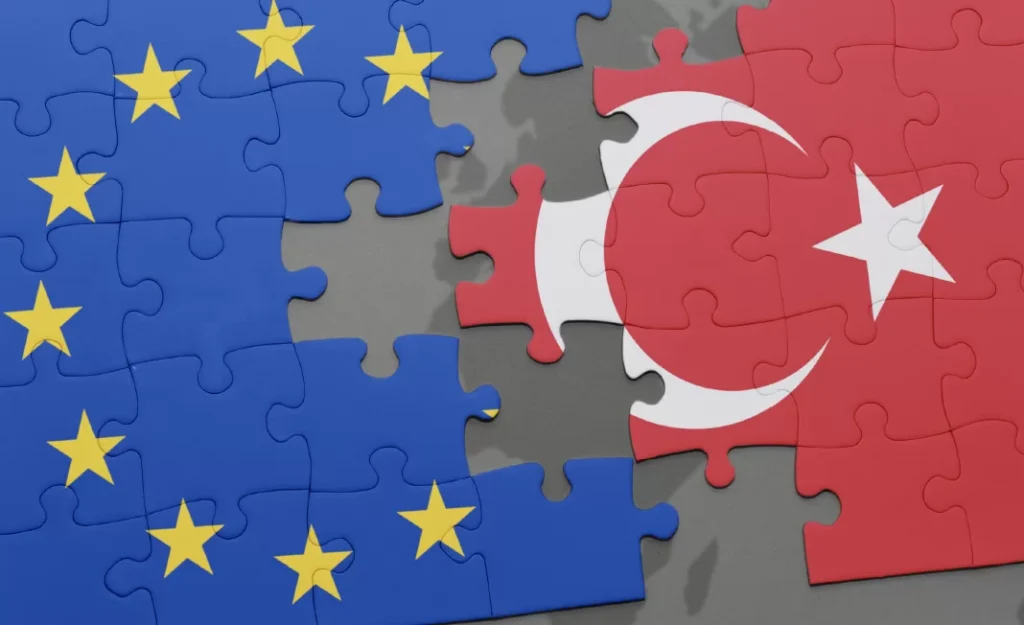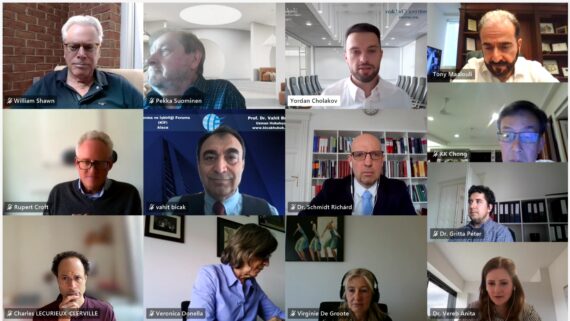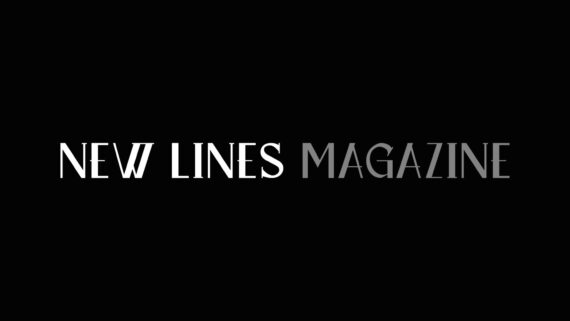The European Union – Turkey Customs Union, in effect since 1996, remains a cornerstone of bilateral trade but is increasingly out of step with modern economic realities. Despite enabling tariff-free movement of industrial goods, the Customs Union excludes key sectors like services, public procurement, and digital trade, while Turkey must align with EU external trade policies without having a seat at the table. Political tensions have stalled long-overdue reform efforts. Drawing on Bıçak Law Firm’s practical legal experience, this analysis examines the Union’s legal structure, operational challenges, and the strategic need for modernization to ensure equitable, efficient, and future-ready trade between Turkey and the EU.
Modernizing the EU – Turkey Customs Union
The Customs Union between the European Union and Turkey, which came into effect on 1 January 1996 through Decision No. 1/95 of the EC–Turkey Association Council, marked a milestone in EU – Turkey economic relations. It has enabled Turkey to integrate significantly into the EU’s single market for industrial goods, offering Turkish manufacturers and exporters the ability to access European markets tariff-free – while obligating Turkey to align its external trade policy with that of the EU.
Nearly three decades later, the Customs Union remains a central pillar of Turkey’s economic framework and its most advanced legal and institutional link with the European Union. However, despite its initial success, the current structure no longer reflects the evolving realities of global trade. The rise of digital services, complex supply chains, and the EU’s expanding network of free trade agreements have exposed legal and operational gaps in the arrangement.
In recent years, calls to modernize the Customs Union have gained momentum, but political tensions and institutional limitations have hindered progress. For businesses operating between the EU and Turkey, these shortcomings are not abstract policy issues – they manifest as day-to-day legal and logistical challenges. In this article, we examine the legal foundation of the Customs Union, the practical difficulties companies encounter, and the prospects for reform from the perspective of both trade law and commercial practice.
Legal Framework and Scope
The EU–Turkey Customs Union is established under Decision No. 1/95 of the EC–Turkey Association Council, adopted pursuant to the Ankara Agreement of 1963 and its Additional Protocol. It legally binds both parties to remove tariffs, quotas, and measures having equivalent effect on the free movement of industrial goods and processed agricultural products. Notably, the Customs Union does not cover services, public procurement, or most unprocessed agricultural products, which remain outside its legal scope.
A key component of the arrangement is Turkey’s alignment with the EU’s Common External Tariff (CET), meaning that Turkey applies the same import duties on third-country goods as the EU does. In addition, Turkey must harmonize its customs legislation with EU law, including technical regulations, customs procedures, and standards.
However, the Customs Union contains an important legal asymmetry: Turkey is obliged to align with the EU’s commercial policy, including its Free Trade Agreements (FTAs) with third countries, but it has no formal role in shaping those agreements. This creates both legal and practical complications. For example, when the EU signs an FTA with a third country, that country gains duty-free access to the Turkish market through the Customs Union, while Turkish goods do not receive reciprocal access unless Turkey separately negotiates its own agreement – often after a delay or on less favorable terms.
In practice, this means that Turkish exporters are sometimes disadvantaged in international trade, despite complying with EU-aligned regulations. The issue has been a longstanding source of frustration and has added to calls for a comprehensive overhaul of the Customs Union’s legal structure to make it more symmetrical, modern, and fit for the complexities of 21st-century trade.
Operational Challenges and Criticisms
While the EU – Turkey Customs Union has facilitated significant trade flows – making the EU Turkey’s largest trading partner – it has also generated a host of operational and structural challenges that continue to affect economic actors on both sides.
- Limited Role in Trade Policy Formation: Perhaps the most frequently criticized aspect of the Customs Union is Turkey’s exclusion from the EU’s decision-making process. Although Turkey is legally bound to align its trade policies with the EU’s, it has no voting rights or formal seat at the table when the EU negotiates new trade agreements with third countries. This creates a legal imbalance and puts Turkish businesses at a disadvantage, particularly when reciprocal access is delayed or denied.
- Transit and Logistics Barriers: Despite the Customs Union’s objective of seamless goods movement, non-tariff barriers continue to exist, especially in the form of road transit quotas and permit restrictions imposed by several EU member states. Turkish logistics firms frequently encounter limitations on the number of trucks permitted to enter EU territory -resulting in delays, added costs, and discriminatory treatment that runs contrary to the spirit of the Customs Union.
- Visa and Mobility Restrictions: Another persistent challenge is the lack of visa liberalization for Turkish businesspeople. Even as goods move relatively freely, Turkish professionals often face bureaucratic hurdles in obtaining Schengen visas to attend trade fairs, client meetings, or customs proceedings in the EU. This mismatch between goods and people movement remains a major obstacle to deeper integration and business development.
- Sectoral Exclusions: The Customs Union does not cover services, public procurement, or agriculture – three increasingly vital sectors in modern trade. The exclusion of digital services, for instance, hampers the competitiveness of Turkey’s rapidly growing tech industry. Similarly, Turkish firms cannot benefit from EU public tenders on an equal footing with EU-based companies, creating an uneven playing field in cross-border economic engagement.
Despite being a landmark agreement in the 1990s, the Customs Union today operates within outdated parameters that no longer reflect the realities of global trade and economic interdependence. For many Turkish exporters and foreign investors, these operational constraints translate into legal uncertainty, additional risk, and commercial inefficiency.
Modernization Talks and Political Stalemate
Calls to modernize the EU–Turkey Customs Union have grown steadily over the past decade, driven by the realization that the 1995 framework no longer aligns with modern trade demands. In 2016, the European Commission issued a report recommending an overhaul of the Customs Union to expand its scope, improve its governance mechanisms, and eliminate persistent bottlenecks.
The proposed modernization aimed to:
- Include services, e-commerce, and public procurement within the agreement’s scope,
- Introduce binding dispute settlement mechanisms,
- Strengthen institutional cooperation and consultation mechanisms,
- Address non-tariff barriers, logistics bottlenecks, and asymmetries in trade policy.
However, despite the technical readiness on both sides, political obstacles have stalled the reform process. The EU has linked the modernization of the Customs Union to broader concerns over the rule of law, human rights, and democratic backsliding in Turkey. As a result, negotiations have not formally commenced, and political tensions have continued to hinder progress.
From Turkey’s perspective, the failure to modernize the agreement represents a missed opportunity for deeper economic integration and a source of growing frustration. Conversely, some within the EU view the Customs Union reform as a strategic tool to incentivize democratic reform in Turkey.
Yet, as geopolitical dynamics evolve, the mutual benefits of modernization are becoming more difficult to ignore. For the EU, a more functional and inclusive Customs Union would support supply chain diversification, increase regulatory convergence, and reinforce economic resilience in its neighborhood. For Turkey, it would mean enhanced market access, reduced uncertainty, and a stronger position in the global trade landscape.
Practical Legal Experience
At Bıçak, we regularly advise both domestic and international clients engaged in cross-border trade between Turkey and the European Union. The EU – Turkey Customs Union plays a central role in these transactions – but so too do its shortcomings, which often manifest in legal disputes, regulatory confusion, or procedural delays.
- Common Legal Issues Faced by Clients: Our clients frequently encounter:
- Customs disputes, including classification errors, origin issues, and valuation disagreements,
- Delays in clearance procedures caused by inconsistent application of customs rules,
- Anti-dumping investigations and safeguard measures, particularly in sensitive product categories,
- Legal uncertainty stemming from the asymmetrical application of EU Free Trade Agreements. In several cases, Turkish exporters have faced competitive disadvantages when trading with countries that have FTAs with the EU but not yet with Turkey. Despite complying with all Customs Union rules, they are excluded from preferential access, leading to commercial and legal frustration.
- Legal Services We Provide: To mitigate these risks and support compliance, our firm offers:
- Customs compliance audits and proactive risk assessments,
- Representation in administrative and judicial proceedings before Turkish customs authorities and courts,
- Legal interpretation of EU-aligned trade legislation applicable in Turkey,
- Advisory services on rules of origin, CE marking requirements, and product conformity,
- Strategic guidance for companies seeking parallel FTA negotiations or dispute resolution.
- We also assist clients in navigating the broader regulatory framework that impacts trade – such as product safety, packaging, and environmental standards – all of which are increasingly harmonized with EU law under the Customs Union framework.
- Trusted Advisor in a Complex Environment: Given the evolving trade policy environment and political sensitivity surrounding Customs Union reform, companies need more than just legal compliance – they need strategic foresight. At Bıçak, we aim to bridge legal analysis with commercial realities, ensuring that our clients are not only protected under current rules but also prepared for future developments in the EU – Turkey trade relationship
Outlook
The EU – Turkey Customs Union remains a foundational element of Turkey’s trade integration with Europe, offering significant advantages to businesses by facilitating tariff-free access for industrial goods and processed agricultural products. However, after nearly three decades, the legal and structural limitations of the existing framework have become increasingly pronounced -particularly in the face of evolving global trade dynamics, digitalization, and shifting geopolitical realities.
Despite its historical success, the Customs Union no longer reflects modern economic priorities, especially in sectors like services, e-commerce, public procurement, and regulatory cooperation. The asymmetrical nature of the arrangement, Turkey’s limited role in EU trade policy, and operational challenges such as transit and visa barriers all call for urgent attention.
While political obstacles have delayed the formal launch of modernization talks, the mutual strategic interest in reforming the Customs Union is clear. Both parties stand to benefit from a more inclusive, updated, and institutionalized framework that enhances legal certainty and economic resilience.
At Bıçak Law Firm, we continue to support clients navigating the complexities of EU–Turkey trade, offering compliance-focused, forward-looking legal solutions. Whether it involves customs disputes, regulatory interpretation, or strategic planning in light of potential reforms, our firm remains committed to ensuring that businesses are protected, prepared, and positioned for success within the EU–Turkey trade landscape.
 English
English Türkçe
Türkçe Français
Français Deutsch
Deutsch










Comments
No comments yet.